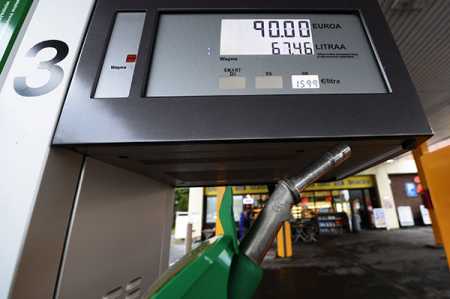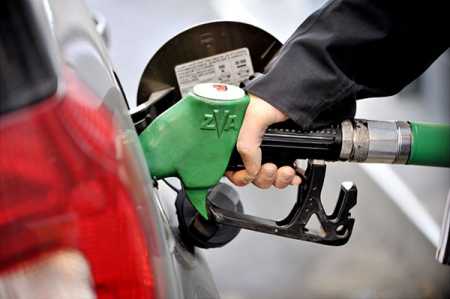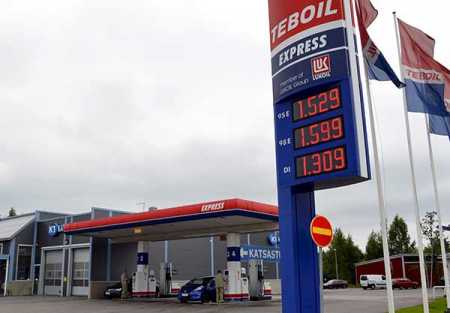
Tue, 22 Dec, 2015 12:11:20 AM
FTimes- STT Report, Dec 22

The price of petroleum products at a refueling station in Helsinki. File Photo – Lehtikuva.
Christmas has come early for motorists as fuel is now available at record low prices.
“The real fuel prices are at an exceptional and historically low level. I cannot say how prices will develop from now onwards,” said Juha Vanninen, sales director of Finnish energy company ST1 Biofuels Oy.
Vanninen pointed out that after the turn of the year, pressure on increasing fuel prices will bring biofuel obligation in the traffic.
“Finland has set an ambitious target that 20 percent of fuel in the traffic should be renewable. Next year the figure will rise from eight to ten percent. It must be noted that we have to take care of the obligation in some way. The state regulation may increase the price even though the world market price for oil continues to drop,” Vanninen said.

Man filling up a car at the gas station in Helsinki. Photo – Lehtikuva.
The government has decided to raise taxation on fuel next year.
Helena Vänskä, the Managing Director at Finnish Petroleum and Biofuels Association said the in-dustry has already got used to regular tax increases.
“The objective of the government is to safeguard the consumers’ purchasing power because petrol and diesel prices directly affect the amount of money available in households,” Vänskä said.
According to the oil industry, euro 4.2 billion collected in taxes from fuels ended up in state coffers.
“Fuel tax is a cost-effective (way) of collecting funds for the state. The funds is used to maintain the welfare state other than in the transport sector,” Vänskä added.

Fuel price at a refueling station in Tampere. File Photo – Lehtikuva.
In the latest consumer price monitoring in the oil and biofuel sector, for example, the price before tax of 95 E10 petrol is 45.2 cents per litre while the consumer pays euro 1.37 per litre.
The consumer price include taxes and para-fiscal charges: fuel tax, security of supply fee and VAT. The taxes accounted for the total amount is about 67 percent.
According to report by news agency Bloomberg, the price of Brent crude oil has hit an 11-year low. The decline of crude oil price has been welcomed by oil refining companies.
“The fall in prices has meant that logistics and energy costs, such as electricity, heat and steam costs have dropped. This has had a positive impact on the oil refining margins in 2015,” said Matti Lehmus, Executive Vice President of Neste Oil.
|
|
|
Founding Chief Editor : Ofiul Hasnat, Published by Dr. Markku Broas on behalf of Development Media Oy, Tievakatu 3 As 28, 96100 Rovaniemi, Finland. E-mail : [email protected]
|